Baking rocks, right? It’s a mix of science and art, with a little magic thrown in.
Sometimes, though, you reach for the sugar and — oops — the jar’s empty.
We’ve got the lowdown on the top granulated sugar swaps to keep that baking mojo flowing.
You’re not stuck just because the sugar bowl’s bare.
From natural sweeteners that might already be in your pantry to some cool alternatives you might not have thought about, we’re here to spill the beans.
These swaps are not just about making do; they’re about making awesome.
Ready to bake up a storm with a twist?
What is Granulated Sugar?

If you’ve ever stepped into a baking supplies shop, you’ve probably seen bags and bags of sugar in all different colors and shapes.
Granulated sugar is one of the most common types of sugar used in baking.
It’s a very fine, white sugar that dissolves easily and gives baked goods a lovely sweetness.
Granulated sugar is made from either sugar cane or sugar beets.
The juice from these plants is boiled down until it forms crystals, which are then spun in a centrifuge to remove any impurities.
The result is pure, white sugar that has a neutral taste.
Granulated sugar is often used in cookies, cakes, and other sweet baked goods.
It dissolves quickly and evenly, which makes it ideal for recipes where you want a consistent sweetness.
You can also use granulated sugar to sweeten coffee or tea.
Simply add a spoonful (or two) to your cup and enjoy.
The 5 Best Substitutes for Granulated Sugar
If you’re looking for a granulated sugar substitute, there are several options available.
Here are the five best substitutes for granulated sugar:
1 – Raw Honey
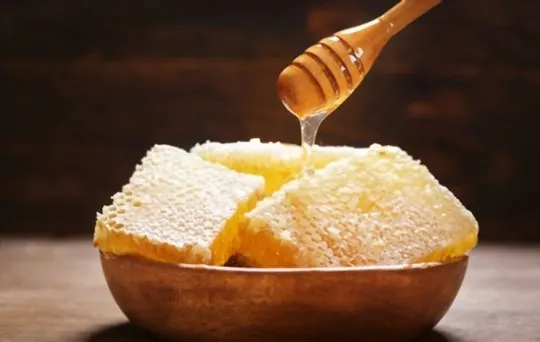
Raw honey is a delicious, all-natural sweetener that can be used in place of granulated sugar.
It has a unique taste and texture that is perfect for baking or adding to your favorite recipes.
Raw honey is also a good source of vitamins and minerals, making it a healthy alternative to other sweeteners.
To substitute raw honey for granulated sugar, simply use one cup of raw honey for every two cups of granulated sugar.
This will help to ensure that your baked goods are just as sweet and tasty as ever.
So, next time you’re looking for a natural sweetener, reach for raw honey.
You’ll be glad you did.
2 – Maple Syrup
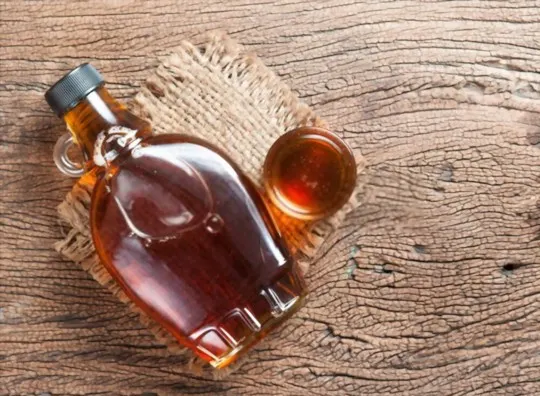
Maple syrup is a delicious, natural alternative to granulated sugar.
It has a distinctively sweet taste, with a hint of caramel flavor.
Maple syrup is also thicker and more viscous than sugar, making it ideal for use in baking and cooking.
When substituting maple syrup for sugar, it’s important to keep the following tips in mind.
First, because maple syrup is sweeter than sugar, you’ll need to use less of it.
Second, because maple syrup is thicker than sugar, you may need to add additional liquid to your recipe.
Finally, because maple syrup has a lower boiling point than sugar, it’s important to cook your food at a lower temperature to prevent it from burning.
3 – Molasses
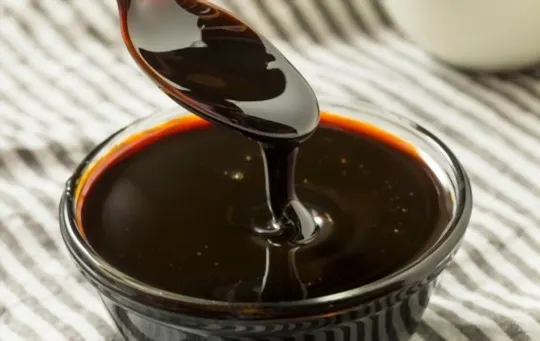
You might not think of molasses as a kitchen staple, but this thick, syrupy sugar is actually quite versatile.
Depending on the type of molasses, it can have a deep, rich flavor that pairs well with baked goods or a more subtle sweetness that makes it ideal for sauces and marinades.
And because molasses is less processed than granulated sugar, it also contains some essential nutrients like iron and calcium.
If you’re looking to substitute molasses for granulated sugar in a recipe, keep in mind that it is about three times as sweet.
So you’ll need to use fewer molasses than sugar to achieve the same level of sweetness.
You’ll also want to account for the fact that molasses is thinner than sugar, so your finished product may be slightly runnier than usual.
4 – Brown Sugar
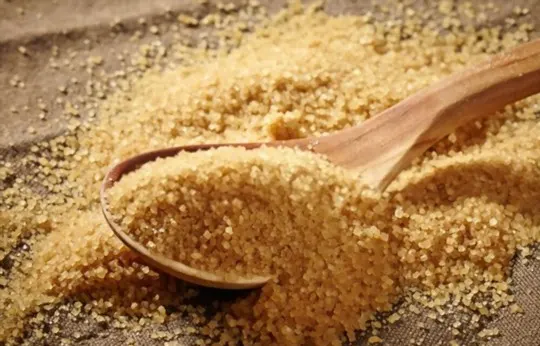
Brown sugar is a type of sugar that has been refined and then molasses added back in.
The molasses gives brown sugar its characteristic flavor and color.
Brown sugar also tends to be moister than granulated sugar, which gives it a softer texture.
You can substitute brown sugar for granulated sugar in most recipes.
However, because brown sugar is moister, you may need to reduce the amount of liquid in the recipe by a few tablespoons.
You may also need to bake the recipe for a minute or two longer, as the extra moisture can prevent baked goods from getting crispy.
But overall, substituting brown sugar for granulated sugar is a fairly straightforward process.
5 – Coconut Sugar
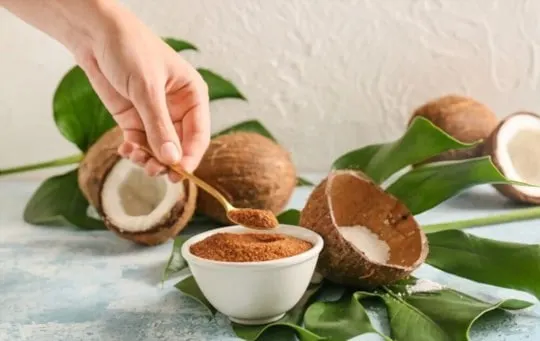
Coconut sugar is a type of unrefined sugar that is made from the sap of coconut palms.
Unlike refined sugar, it retains many of the nutrients and fiber found in coconuts.
As a result, it has a lower glycemic index than regular sugar, meaning it doesn’t cause spikes in blood sugar levels.
Coconut sugar also has a distinctive taste and texture.
It is slightly more dense than granulated sugar and has a subtle nutty flavor.
When substituting coconut sugar for granulated sugar, you will need to use less of it, as it is more concentrated.
Simply replace granulated sugar with three-quarters cup of coconut sugar for every cup called for in the recipe.
With its distinctive taste and lower glycemic index, coconut sugar is a great alternative to traditional granulated sugar.
Conclusion
In conclusion, granulated sugar is not the only type of sugar available for use in recipes.
There are many substitutes that can be used in its place, each with its own unique flavor and set of benefits.
The best substitute for granulated sugar will depend on your personal preferences and the specific recipe you’re making.
But overall, any of the substitutes listed above would make a great alternative to granulated sugar.
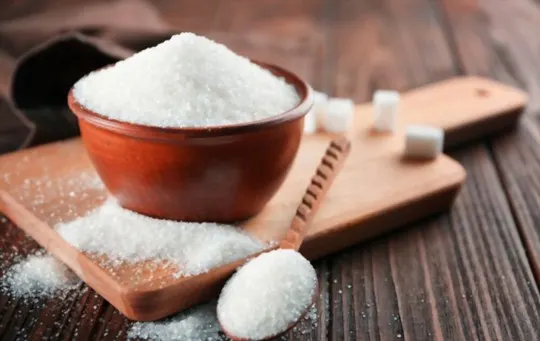
The 5 Best Substitutes for Granulated Sugar
Ingredients
- Raw Honey
- Maple Syrup
- Molasses
- Brown Sugar
- Coconut Sugar
Instructions
- Pick your favorite substitute from the list above.
- Follow cooking directions for your selected substitute with the proper ratio of ingredients.

Andrew Gray is a seasoned food writer and blogger with a wealth of experience in the restaurant and catering industries. With a passion for all things delicious, Andrew has honed his culinary expertise through his work as a personal chef and caterer.
His love for food led him to venture into food writing, where he has contributed to various online publications, sharing his knowledge and insights on the culinary world. As the proud owner of AmericasRestaurant.com, Andrew covers a wide range of topics, including recipes, restaurant reviews, product recommendations, and culinary tips.
Through his website, he aims to inspire and educate fellow food enthusiasts, offering a comprehensive resource for all things food-related.

Leave a comment